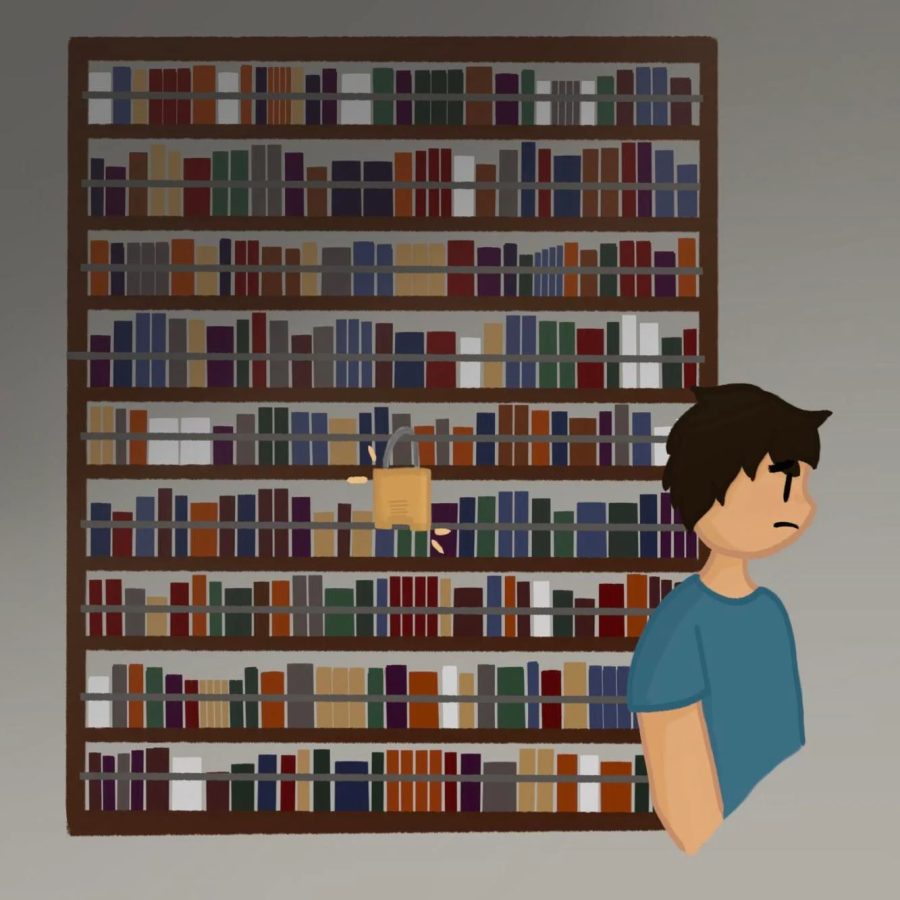Banning books endangers educational power
March 8, 2022
Tim Petersen wrote this article for Cal State Fullerton’s Daily Titan. It is available for republication or reference. If you think their work is important, you can support it here.
Banning books in American schools is a foolish mistake. In particular, banning books with educational value weakens the American education system. The continued push to censor important issues like human sexuality, race, and political ideas run against core American values.
Although protecting children from obscenity and gore is common sense, utilizing common sense is different from censorship. Unfortunately, obscenity seems to be frequently weaponized in defense of censorship when in reality, obscenity is a scapegoat for censoring opposing points of view.
Book censorship in American schools is nothing new. One particular case from 1982 made it to the United States Supreme Court. In Board of Education, Island Trees Union Free School District v. Pico, the Supreme Court ruled that school boards need to abide by the First Amendment when banning a book from school libraries.
The main argument from the Supreme Court was that school boards did not have a right to remove books for political reasons. Thus, school boards are violating students’ First Amendment rights by banning books in an attempt to suppress opposing political ideas.
Even after this ruling, schools continue to remove books under the guise of obscenity. For instance, South Carolina Gov. Henry McMaster questioned the screening process for books in the state’s schools.
In his letter, McMaster focused on one particular graphic novel, “Gender Queer: A Memoir,” by Maia Kobabe. McMaster claimed the book met the criteria for obscenity. The book in question is heavy in LGBTQ themes.
In fact, numerous books about the LGBTQ experience are banned for perceived obscenity. According to the American Library Association, in 2019, eight of the ten books on the list were restricted or banned for their LGBTQ content.
Restricting the ideas of LGBTQ authors ignores the ruling made by the Supreme Court in 1982. Gender identity and sexuality are political issues. Yet, conservative school districts want to restrict access to the voices of the LGBTQ community.
In November 2021, Texas Gov. Greg Abbott sent a letter to the executive director of the Texas Association of School Boards stating that they need to assure parents that their children will not be exposed to obscene material while attending public school in Texas.
The problem is that obscenity is subjective and used as an excuse to censor different ideas. For example, one may skim through a history book and find the topics and images obscene. Yet, society sees the educational value in discussing horrific historical events with students.
Subjectivity is the heart of the issue with banning books. Once a book contains “obscene” images or ideas and receives that label, schools have a license to ban them. One’s opinion will influence what is deemed as obscene.
This problem of censorship is not exclusive to the LGBTQ genre.
Other banned books on the American Library Association’s list include themes discussing race and racism. Censoring issues of race and racism just because it makes some people feel uncomfortable ignores reality. It is not a delusion worth upholding because it does not safeguard everyone’s democracy.
Censoring topics like race and sexuality is irresponsible. The trend in censorship of essential issues will lead to a future of uneducated adults leading to an endless cycle of ignorance.
Reading is one of the primary forms of information consumption. It is necessary that children see viewpoints that are different from the ones they grew up around in order for them to become informed citizens. Books allowed in school libraries must reflect and inform students of the world in all its complexity.
Most people will agree that kindergartners are not mentally prepared to learn about human sexuality, slavery or the atrocities of the Holocaust, but that does not mean depriving every age group of this information is the right call. Parents should not dictate the content of their children’s education when it impacts the education of thousands of other students. Withholding books that provoke critical thinking is irresponsible and dangerous.


